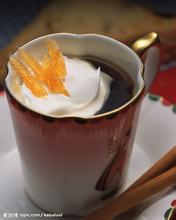Characteristics of coffee flavor and taste in Ethiopian coffee farm, which ranks first in consumption in Africa.
In February 1977, Lieutenant Colonel Mengistu Haier Maryam (MENGISTU HAILE MARIAM) launched a military coup and served as Chairman and head of State of the interim military Administrative Council. In 1979, the Ethiopian Labor people's Party Organizing Committee, mainly composed of soldiers, was established to implement an one-party system. In 1984, the Ethiopian Workers' Party was formed according to the Soviet Communist Party model. In September 1987, Mengistu announced the dissolution of the "interim military Administrative Council", the end of military rule, the establishment of the "people's Democratic Republic of Ethiopia" and the establishment of a new parliament, with Mengistu as president and head of government.
In March 1988, the rebel "Eritrean people's Liberation Front" (EPLF) and the "Tigre people's Liberation Front" (TPLF) launched an attack on government forces, and a large-scale civil war broke out. In 1989, the Eritrean people's Liberation Front occupied most of Eritrea. On May 28, 1991, EGF troops, mainly the Tigre people's Liberation Front, entered Addis Ababa and the Mengistu regime was disintegrated. [3]
Transitional government period
In July 1991, EGF hosted a national conference with the participation of more than 20 political and ethnic organizations. The meeting adopted the Transitional Charter and elected an 87-member House of Representatives, with EGF Chairman Meles Zenawi as President and President of the Transitional Government. A transitional government was established. On May 24, 1993, Eritrea (formerly Eritrea Province of Ethiopia) became a sovereign state through a referendum under the supervision of the international community.
The coffee market regulatory body in Ethiopia is the Ethiopian Coffee and Tea products Administration. There are two auction centers in the country, one in the capital Addis Ababa (Addis Ababa) and the other in Dire Dawa in eastern Ethiopia. Coffee growers wash fresh fruits or take them to private coffee processing plants or cooperative coffee washing stations. Washed and dried coffee beans are transported to a central store in Addis Ababa, the capital, where they are fully inspected and soaked, rated according to poor quality and auctioned. Coffee from state-owned farms has to follow the same procedure after being processed by the farm. Buyers who participate in the auction will carefully observe the coffee beans and their soaking proof before bidding. The bidding takes the form of the buyer shouting out the price.
Export of Ethiopian coffee
Ethiopia exports 80% of its natural or sun-cured coffee beans and 15% of its wet-processed coffee beans every year. Ethiopia has about 2.5% of the global coffee market. Ethiopia's coffee is exported to all parts of the world, and Germany, Japan, Saudi Arabia and the United States are Ethiopia's four major coffee exporters. On average, Ethiopia exports about 109000 tons of coffee (equivalent to 1.8 million bags of 60 kg coffee) to all parts of the world each year, which is an important industry in Ethiopia. Ethiopia is not only a symbol of coffee, but also relies on coffee exports to achieve prosperous economic development, not only that, the whole of Ethiopia also loves to drink coffee.
Ethiopians have a penchant for coffee, with an annual per capita coffee consumption of 3 kg. Ethiopia ranks first in terms of coffee consumption in Africa and, if compared with European countries, can also rank among the top-middle coffee consuming countries in Europe.
Now, Ethiopia produces coffee not only for drinking, but also for coffee lovers around the world to enjoy it better. With the continuous improvement of the quality and production efficiency of the coffee industry, Ethiopia is now more than ever able to provide high-quality coffee to even the most picky and discriminating customers. Ethiopia hopes that not only the coffee consumers in the world but also the Chinese people can share this precious wealth of Ethiopia. Because the Chinese people have gradually become experts in appreciating the quality of coffee.

Important Notice :
前街咖啡 FrontStreet Coffee has moved to new addredd:
FrontStreet Coffee Address: 315,Donghua East Road,GuangZhou
Tel:020 38364473
- Prev

Introduction to the characteristics of coffee flavor and taste in Nicaragua's Tianyi Manor, which is medium-sized and very aromatic.
The excellent Nicaraguan coffee is among the highest in the world, it is mild and delicious, moderate granule, very fragrant. In many countries, coffee production has been seriously affected for political reasons. Nicaraguan coffee industry is no exception. The 1979 revolution forced coffee planters to flee to Miami. It was followed by a period of uncertainty, and the government considered whether to re-divide it.
- Next

Introduction of Coffee Flavor and Taste characteristics in Xidamo Chiso producing area of Ethiopia
Ethiopia has a unique flavor that is different from other flavors and provides customers all over the world with a wide range of taste choices. Shaqiso is located in the highlands of southwestern Ethiopia. The Kaffa, Sheka, Gera, Limu and Yayu Senri coffee ecosystems are considered to be Arabica coffee.
Related
- Does Rose Summer choose Blue, Green or Red? Detailed explanation of Rose Summer Coffee plots and Classification in Panamanian Jade Manor
- What is the difference between the origin, producing area, processing plant, cooperative and manor of coffee beans?
- How fine does the espresso powder fit? how to grind the espresso?
- Sca coffee roasting degree color card coffee roasting degree 8 roasting color values what do you mean?
- The practice of lattes: how to make lattes at home
- Introduction to Indonesian Fine Coffee beans-- Java Coffee producing area of Indonesian Arabica Coffee
- How much will the flavor of light and medium roasted rose summer be expressed? What baking level is rose summer suitable for?
- Introduction to the characteristics of washing, sun-drying or wet-planing coffee commonly used in Mantenin, Indonesia
- Price characteristics of Arabica Coffee Bean Starbucks introduction to Manning Coffee Bean Taste producing area Variety Manor
- What is the authentic Yega flavor? What are the flavor characteristics of the really excellent Yejasuffi coffee beans?

